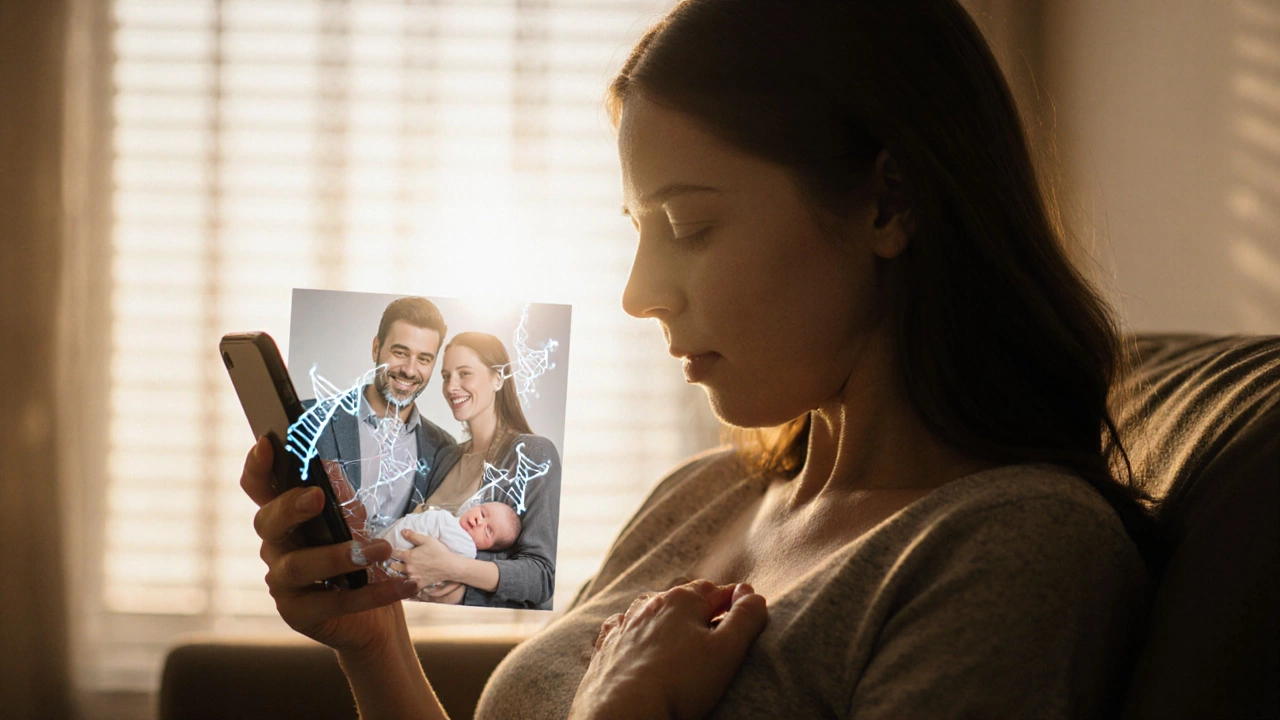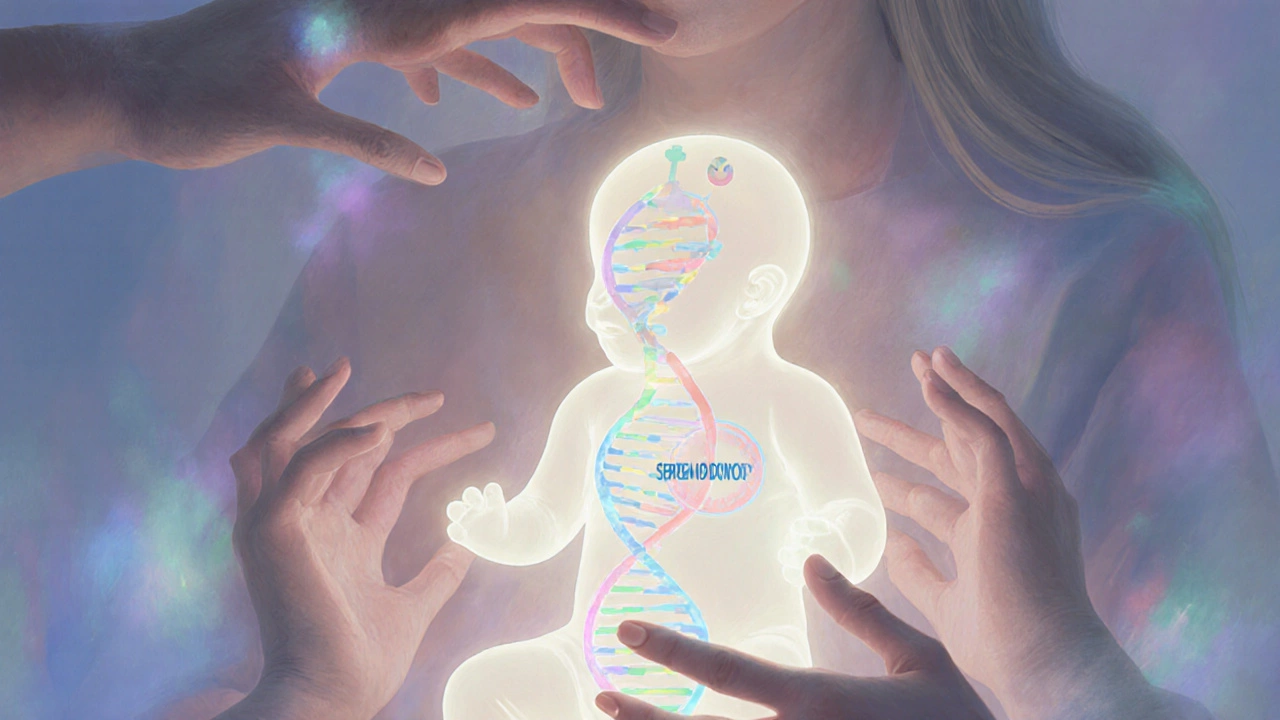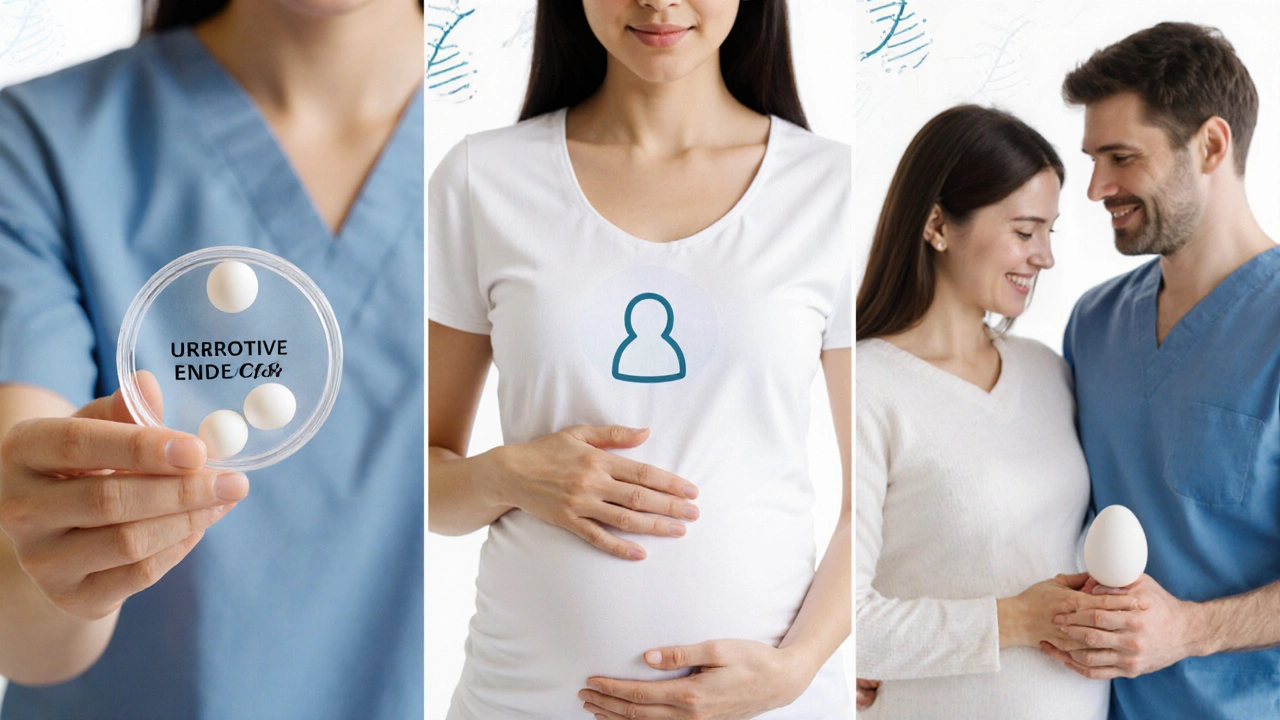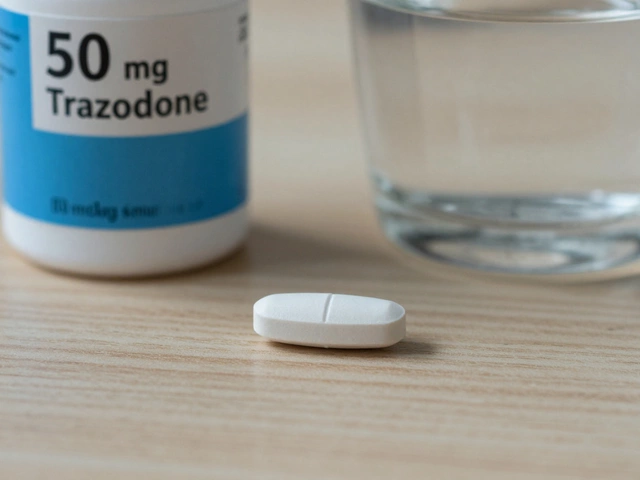IVF Role Calculator
Who is the biological mother?
This calculator helps you understand the difference between biological mother (egg provider), birth mother (gestational carrier), and legal mother in IVF scenarios.
Your IVF Roles
Select scenario to see results
Select scenario to see results
Select scenario to see results
Select scenario to see results
When you hear the word "mother," you probably think of the person who carried the baby, gave birth, and raised them. But with IVF, that’s not always the case. The question who is the biological mother of an IVF baby isn’t as simple as it sounds-and it’s one that couples, single parents, and LGBTQ+ individuals ask before even starting treatment.
Biological mother means egg provider, not just birth mother
In IVF, the biological mother is the person who provides the egg. That’s it. The egg carries half the baby’s DNA. The other half comes from the sperm provider. Whether the egg is fertilized in a lab, implanted into the same person who provided it, or carried by someone else, the biological mother is defined by genetics-not gestation.Many people assume the woman who gives birth is automatically the biological mother. That’s true in natural conception. But with IVF, you can separate those roles. For example:
- A woman uses her own egg, which is fertilized with her partner’s sperm, then implanted into her own uterus. She is both the biological and birth mother.
- A woman uses a donor egg, fertilized with her partner’s sperm, and carries the pregnancy. She is the birth mother, but not the biological mother.
- A woman uses her own egg, fertilized with donor sperm, and a surrogate carries the baby. She is the biological mother, but not the birth mother.
The key is this: biological mother = egg donor. The person who carries the baby is the gestational carrier. The person who gives birth is the birth mother. These roles can overlap, but they don’t have to.
Why does this distinction matter?
This isn’t just a technical detail. It affects legal rights, emotional bonding, medical history, and even how you explain the child’s origins later.Imagine a couple where the woman has premature ovarian failure. She can’t produce viable eggs. They use a donor egg, fertilized with the husband’s sperm. The wife carries the pregnancy. She feels every kick, every flutter. She’s the one who stayed up nights with morning sickness, who chose the baby’s name, who pushed through labor. To her, she’s the mother. But genetically, she isn’t.
That’s why clinics spend time talking about this before treatment. They want you to understand: if you’re using a donor egg, your child won’t share your DNA. That doesn’t make you any less of a parent-but it does mean you’ll need to think about how to talk about it.
On the flip side, if you’re using your own egg but need a surrogate, you’re still the biological mother. Your child will carry your genes. The surrogate is a vessel, not a genetic contributor. Many intended parents find comfort in knowing their child is genetically theirs, even if someone else carried them.
What about egg donors? Are they the mothers?
Legally and medically, no. An egg donor gives up all parental rights. She signs legal paperwork before donation, waiving any claim to the child. In the UK, egg donors are anonymous unless the child requests identifying information at age 18.Some donors feel emotionally connected to their donation. Others see it as helping a family, like donating blood. But legally, they are not the mother. They’re a contributor of genetic material-nothing more.
There’s a big difference between being a biological contributor and being a parent. Parenting is about love, care, and commitment-not DNA.
Same-sex female couples and IVF
For two women in a relationship, IVF opens up unique possibilities. One partner can provide the egg. The other can carry the pregnancy. That’s called reciprocal IVF.In this case, one woman is the biological mother (egg provider), and the other is the birth mother. Both are legal parents in the UK, but only one is genetically linked to the child. Some couples choose to rotate roles across multiple children so both partners can have a biological connection.
There’s no right or wrong here. Some families want both partners to be genetically connected. Others prioritize who carries the pregnancy. It’s deeply personal.

Surrogacy and biological motherhood
If you’re using a surrogate, the biological mother is still the egg provider. The surrogate has no genetic link unless she’s also the egg donor-which is rare and legally complex in the UK.In gestational surrogacy (the most common type), the surrogate is not biologically related to the baby. She’s a carrier. The intended parents are the biological parents if they provided the egg and sperm.
UK law says the surrogate is the legal mother at birth, even if she’s not genetically related. But intended parents can get a Parental Order within six months, which transfers legal parenthood to them. This process is straightforward if all parties agree.
It’s important to know: a surrogate cannot keep the baby after birth if she’s not the biological mother and the intended parents have followed the legal steps. But emotional boundaries matter. Many surrogates form bonds with the babies they carry. That’s why agencies screen for emotional readiness and offer counseling.
What if you use a donor egg and donor sperm?
In that case, neither intended parent is the biological mother or father. The child is genetically unrelated to both. So who is the biological mother? The egg donor. Who is the biological father? The sperm donor.This is common in cases of both partners being infertile, or for single women or same-sex male couples using surrogacy. The intended parents are the legal and social parents. They raise the child, love the child, and are the child’s family. But genetically, the child’s DNA comes from two strangers.
Some parents choose to tell their child early about the donor origins. Others wait until the child is older. There’s no single right way. But research shows that children who grow up knowing their origins tend to have better emotional outcomes.
What does the law say in the UK?
UK law is clear: the woman who gives birth is the legal mother at birth. That’s true even if she’s a surrogate.But if you’re the intended parent and you used your own egg, you can apply for a Parental Order. This transfers legal parenthood to you. If you used a donor egg, you’re still the legal mother once the order is granted-even though you’re not genetically related.
For same-sex couples, both partners can be named on the birth certificate if they’re married or in a civil partnership. If not, the non-birth parent must go through adoption.
Donor egg and sperm use is regulated by the HFEA (Human Fertilisation and Embryology Authority). Donors can’t be paid beyond expenses. They can’t remain anonymous forever-children conceived after 2005 can request identifying information at 18.

What about emotional impact?
Knowing who the biological mother is doesn’t change the love you feel for your child. But it can bring up complex feelings.Some women using donor eggs struggle with grief over not passing on their genes. Others feel relief they didn’t pass on a genetic condition. Some men feel disconnected if they didn’t provide the sperm. These are normal reactions.
Therapists who specialize in fertility often recommend journaling, support groups, or talking with other parents who’ve been through IVF. You’re not alone. Over 8,000 IVF cycles are performed each year in the UK, and many involve donor eggs or surrogacy.
One mother I spoke to said: "I didn’t give my daughter my eyes or my nose. But I gave her my bedtime stories, my hugs, my patience. That’s what made her mine."
Can you change who the biological mother is?
No. Once the egg is fertilized, the genetic makeup is set. You can’t swap DNA after the fact. That’s why choosing your egg source matters.If you’re considering IVF, think about this:
- Do you want your child to carry your genes?
- Are you comfortable using a donor egg or sperm?
- Who do you want to carry the pregnancy?
- How will you explain the child’s origins?
There’s no perfect answer. But understanding the facts helps you make the right choice-for your family, not just your biology.
Final thought: Motherhood isn’t defined by DNA
The biological mother of an IVF baby is the egg provider. But the real mother is the one who shows up-day after day, through sleepless nights, school runs, scraped knees, and quiet hugs.IVF doesn’t change that. It just gives more people the chance to become mothers. And that’s what matters most.
Is the birth mother always the biological mother in IVF?
No. The birth mother is the person who carries and gives birth to the baby. The biological mother is the person who provided the egg. In many IVF cases, these are two different people-especially when using donor eggs or surrogacy.
Can a woman be the biological mother without carrying the baby?
Yes. If a woman provides her own egg, which is fertilized and implanted into a surrogate, she is still the biological mother. The surrogate carries the baby but contributes no genetic material.
Does using a donor egg mean you’re not the real mother?
Absolutely not. Motherhood is defined by love, care, and commitment-not genetics. Many parents who use donor eggs form deep, unbreakable bonds with their children. Legal and social parenthood are what matter most.
Are egg donors considered mothers in the UK?
No. Egg donors in the UK sign legal agreements giving up all parental rights. They are not listed on the birth certificate and have no legal claim to the child. The intended parents become the legal parents after a Parental Order.
Can a child find out who their egg donor is?
Yes. In the UK, children conceived using donor eggs after 2005 can request identifying information about their donor when they turn 18. This is managed by the HFEA. Donors are not anonymous after this date.





